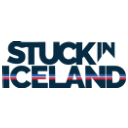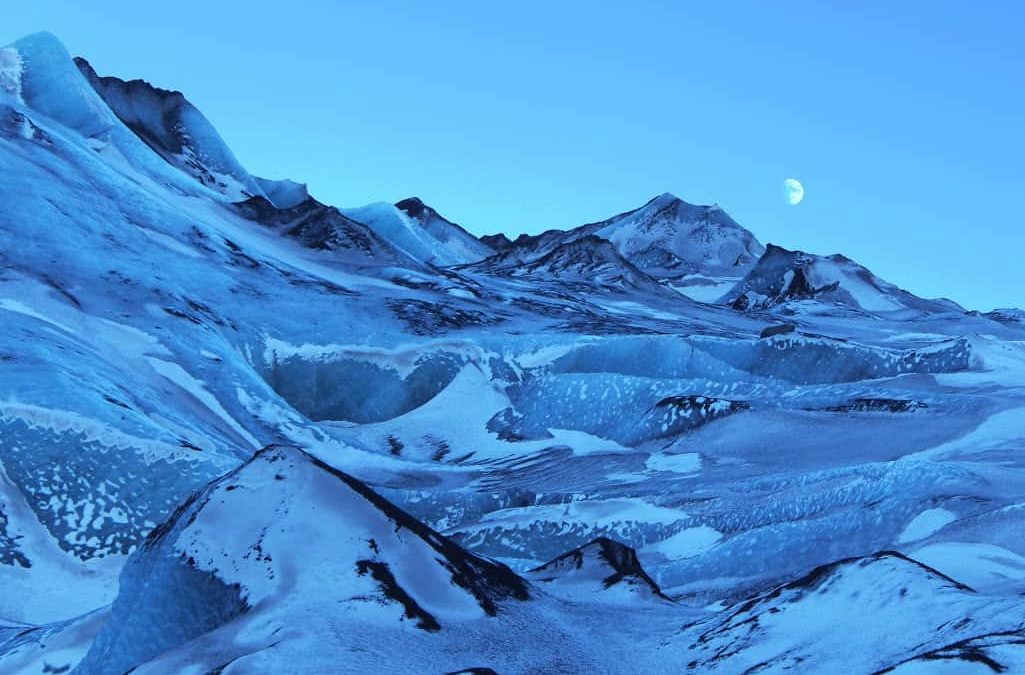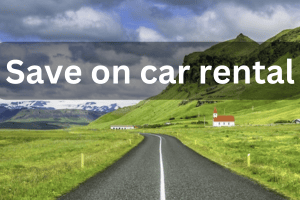Join 8,000 Iceland Travel Fans & Unlock Exclusive Discounts
Subscribe and instantly receive free discount codes for tours, car rentals, camper vans, and outdoor gear — carefully hand-picked to help you save on your Iceland adventure.
- ✔ Instant access to exclusive discount codes
- ✔ Savings on tours, car and camper rentals
- ✔ Tips and inspiration for planning your Iceland trip
Words and pictures by Drew Pyke.
As avid wildlife photographers from leafy Sussex (UK), we arrived in Iceland full of ‘northern promise’. Having ventured to the orang-utans of the Borneo rainforest and the puffins of the Farne Islands the year before, the most sparsely populated island in Europe was always going to be the priority for 2015. We closed down our laptops at our respective warm office jobs to take the 3 hour flight to sub-zero Celsius and the prospect of new and hardy species.
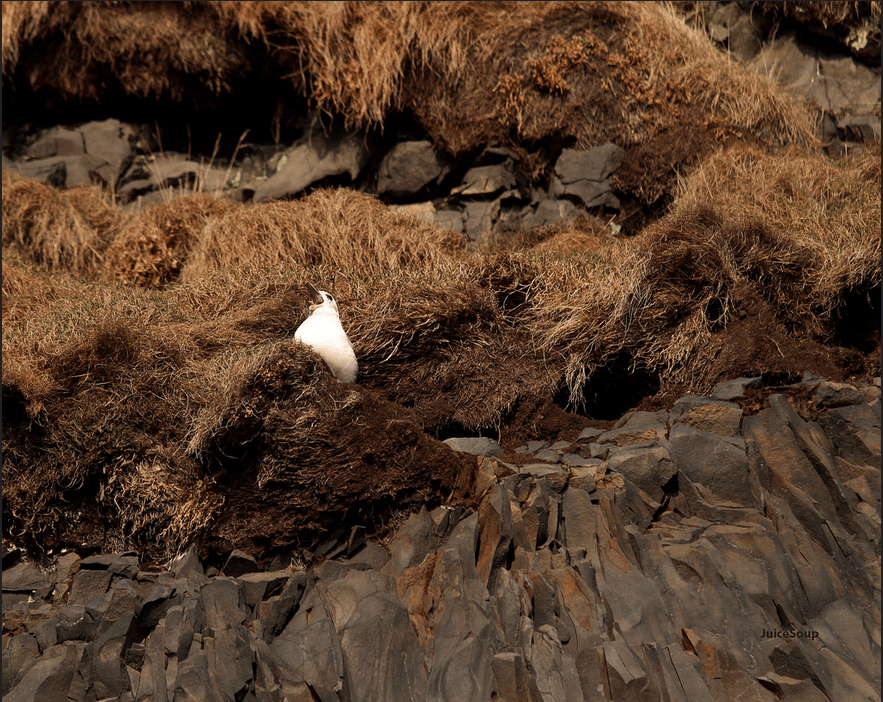
That left the island itself and its violent geology. For us, this was the big surprise; being drawn in by big rocks and ice patterns wasn’t expected. With the fluid ice sculptures at the Gulfoss waterfall, the green ice of the Sólheimajökull and water explosions of geysir (where our English word geyser comes from); these non-living life forms caught us off guard.
Book a hotel and a flight to Iceland
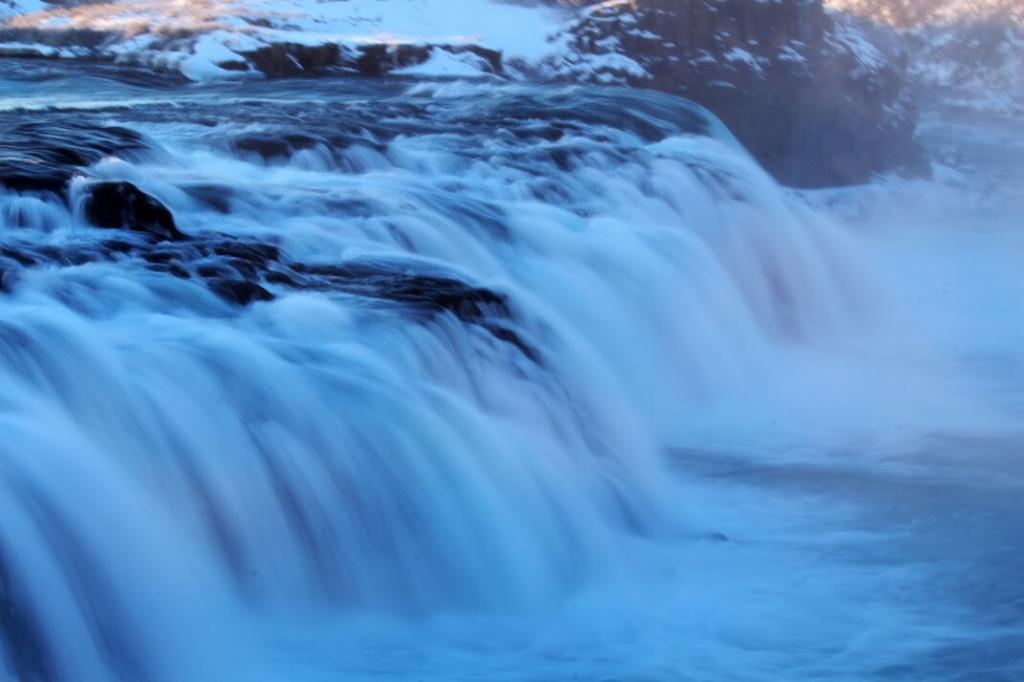
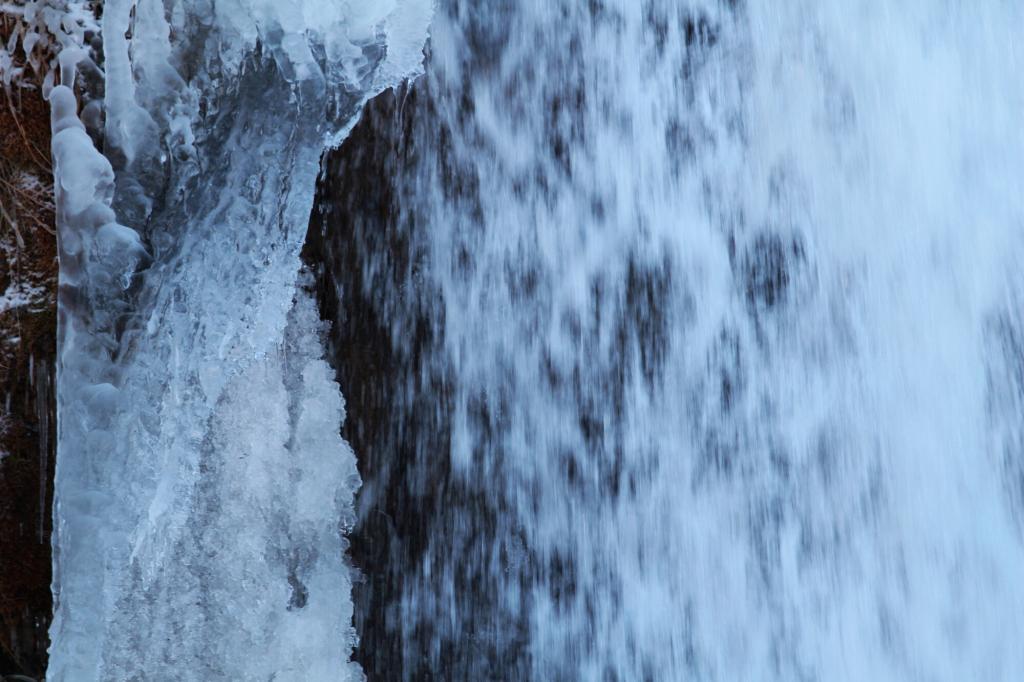

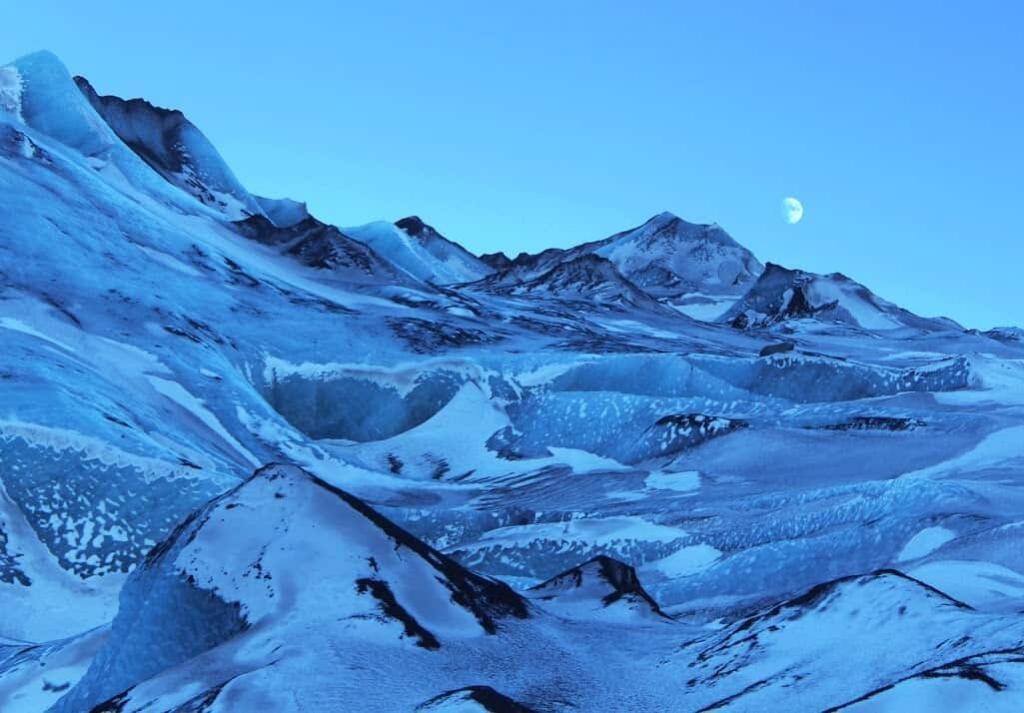
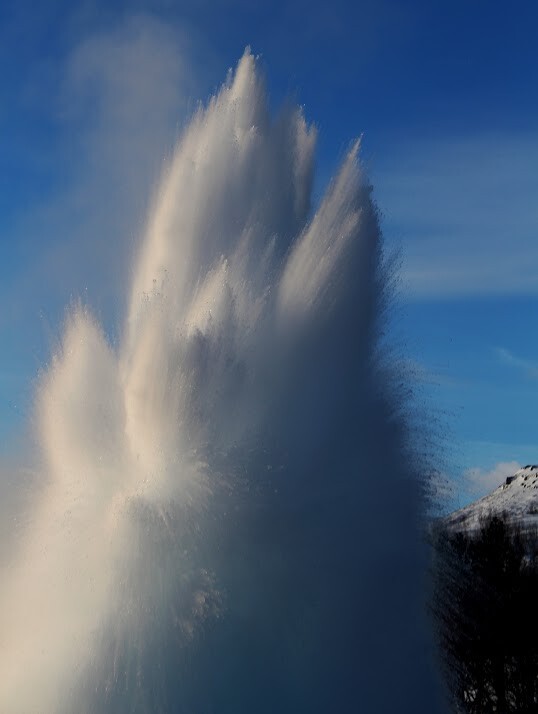
The northern lights too had waited for us on arrival and glimmered dimly during the bus ride into the city from the airport to then opening up to two spiraling green bands that hazed in and out of focus before disappearing in with the light pollution of the suburbs. Three nights on the trot however gave us increasingly clearer views in dark skies some 20 minutes outside of the city. Tripod in hand, we setup the shots with a very gentle 100 ISO, a large 3.5 aperture and a long 30 second shutter speed to capture as much of the dance as possible. It is important to capture the Aurora Borealis outside the city looking in rather than from inside looking out, not just to avoid the light pollution but to capture the city lights with the northern lights above it. Be sure to hug your camera between shots to prevent vapor freeze on your lens.
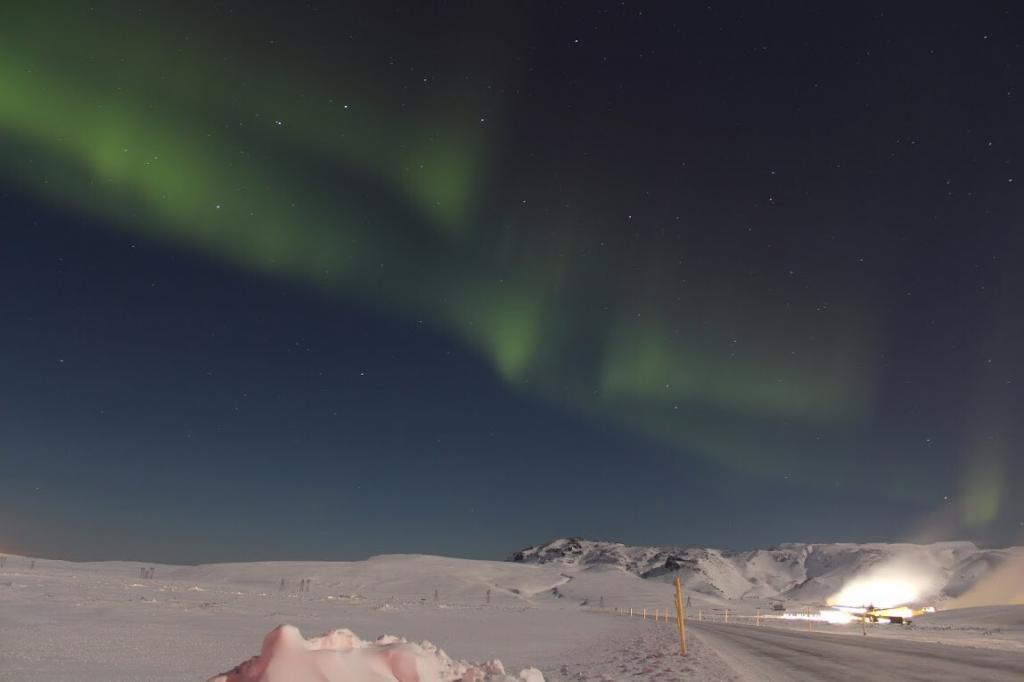
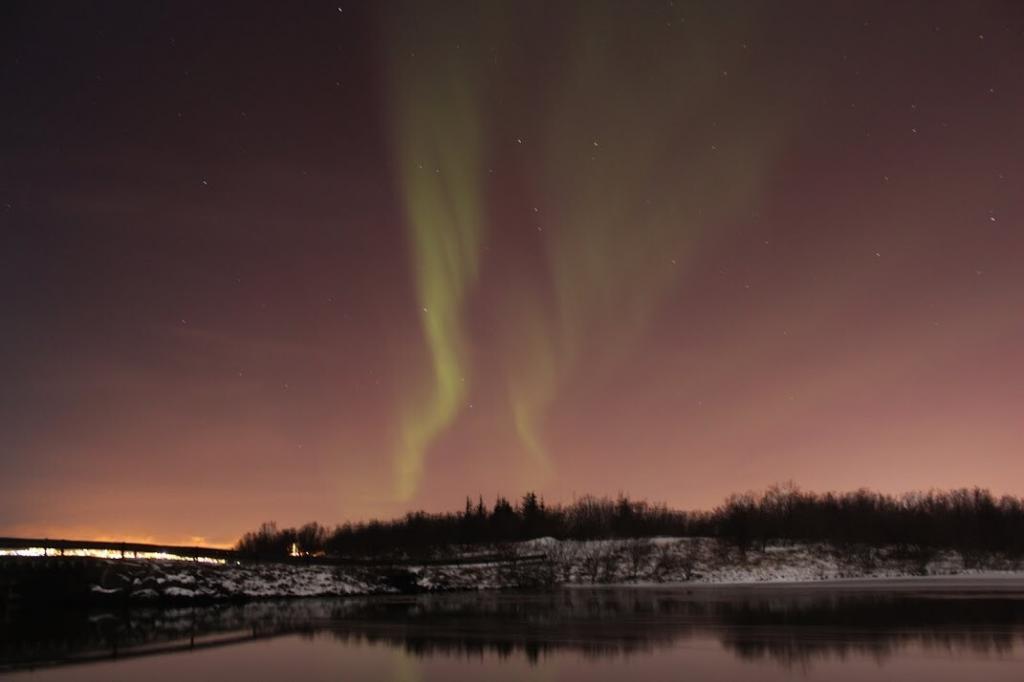
Reykjavik as a city is tiny compared to continental capitals, although still constitutes 60% of the total Icelandic population. This gives a very different experience coupled with the long evenings where you feel yourself intimating the local space with others instead of a world of individuals, like London or Paris. The waiters and hoteliers speak fluent English and give you their stories (such as skinning cows with their knuckles or the complex nature of how they name their children). A delicacy that has to be tried is the sheep’s head (Svið), which is prepared for you by cutting the skull in half, singeing the flesh, boiling the meat and then scooping the brain out. The amount of meat is relatively small so requires a lot of picking and pulling, but the cheek and tongue are particularly tender. We found only one guaranteed place to order this which is the BSI bus terminal that is walkable from the city centre. This gives you a real authentic local feel with its plastic seating, beige décor and basic condiments compared to the upmarket continental bistros and cafes you can find in town.
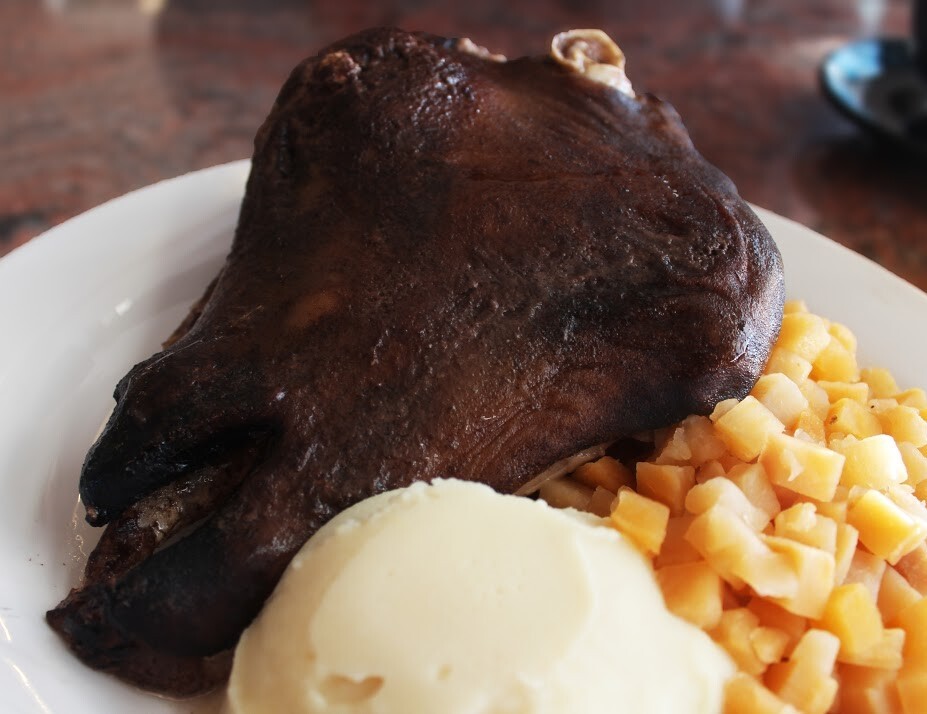
A real gem in the capital that we happened upon after a wrong turn is the Einar Jónsson museum (couple of minutes walk from the Hallgrímskirkja Lutherian church). This is a series of statues of varying scales that depict yearning warriors, mothers and children in realistic folklore poses and styles. The intricate detail offered small crevices that the snow was able to fall in and give the artefacts even more contrast and intrigue.
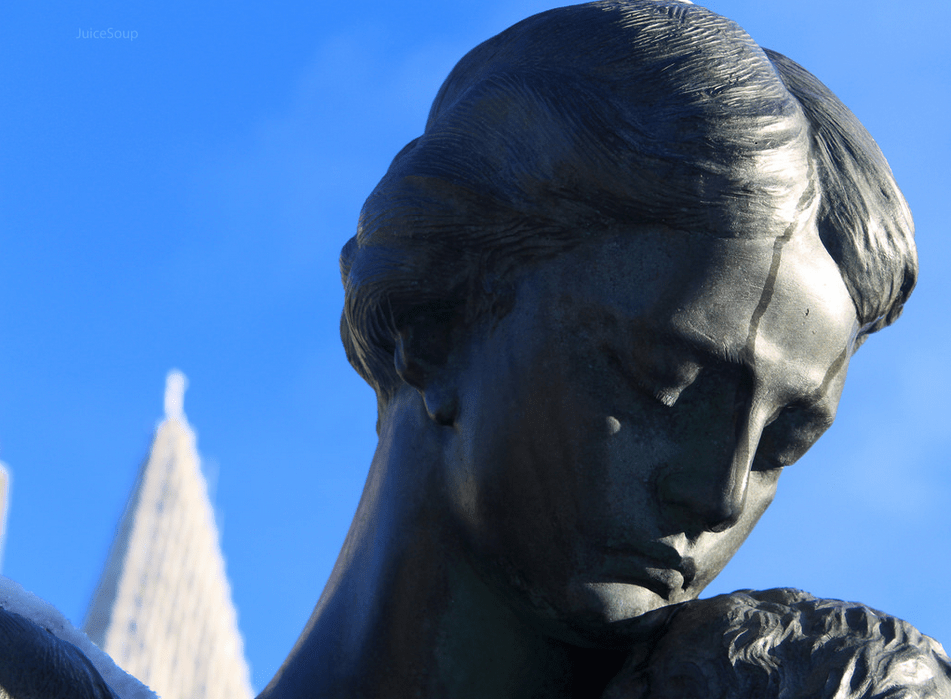
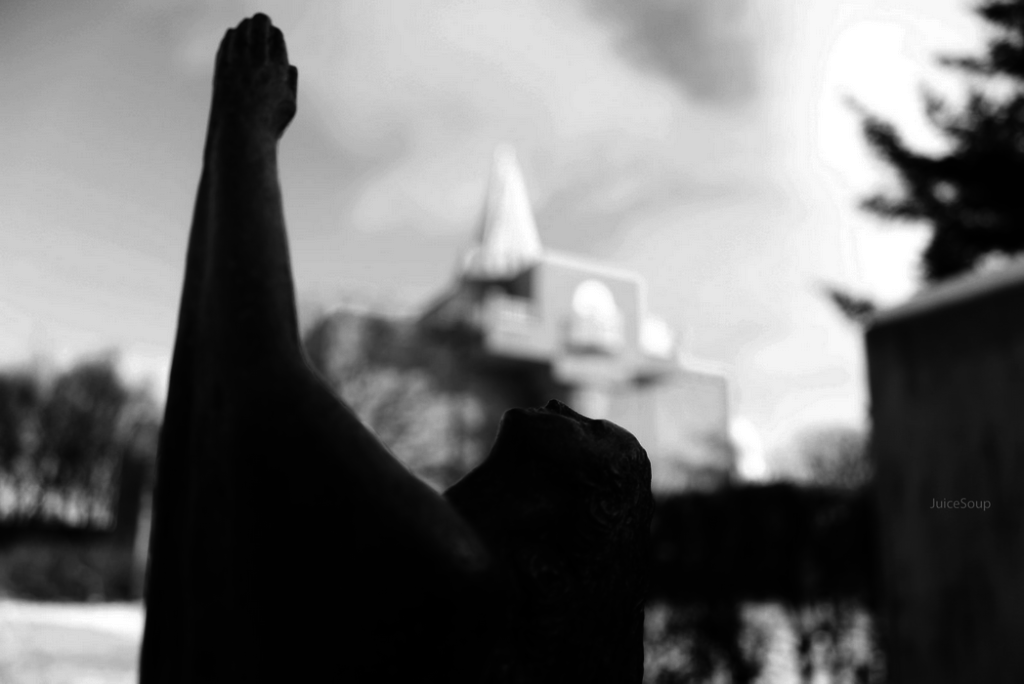
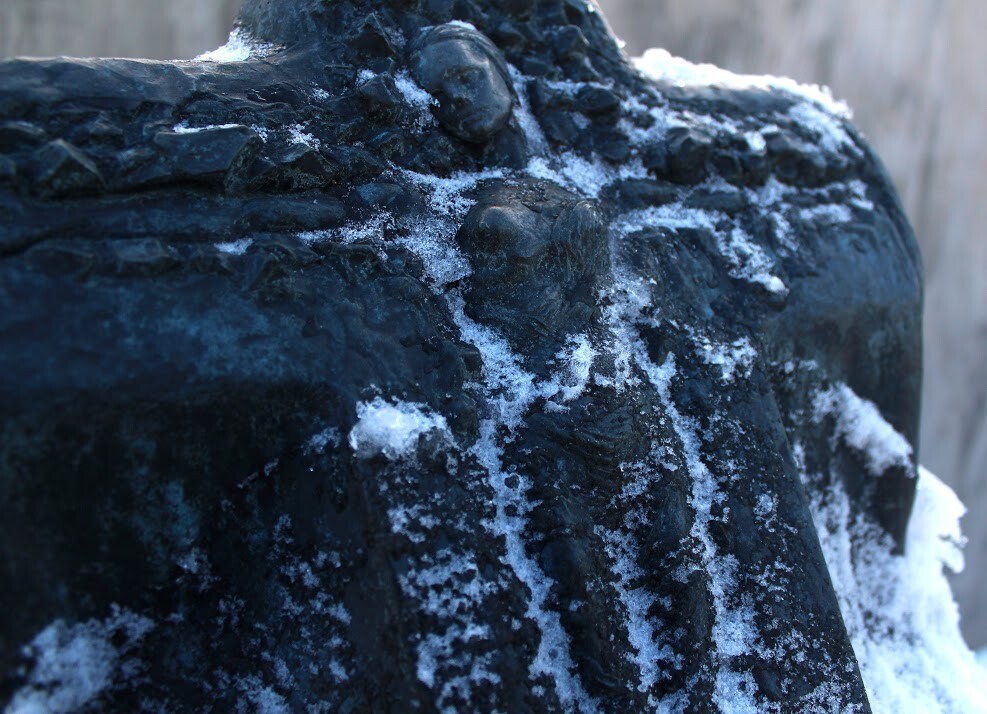
Despite the lack of wildlife, the island itself offered scenery in constant flux, prompting the tele-lens to sit snug in our rucksack for the majority of the trip for the wide-angle to swallow up the awe inspiring valleys and canyons.

